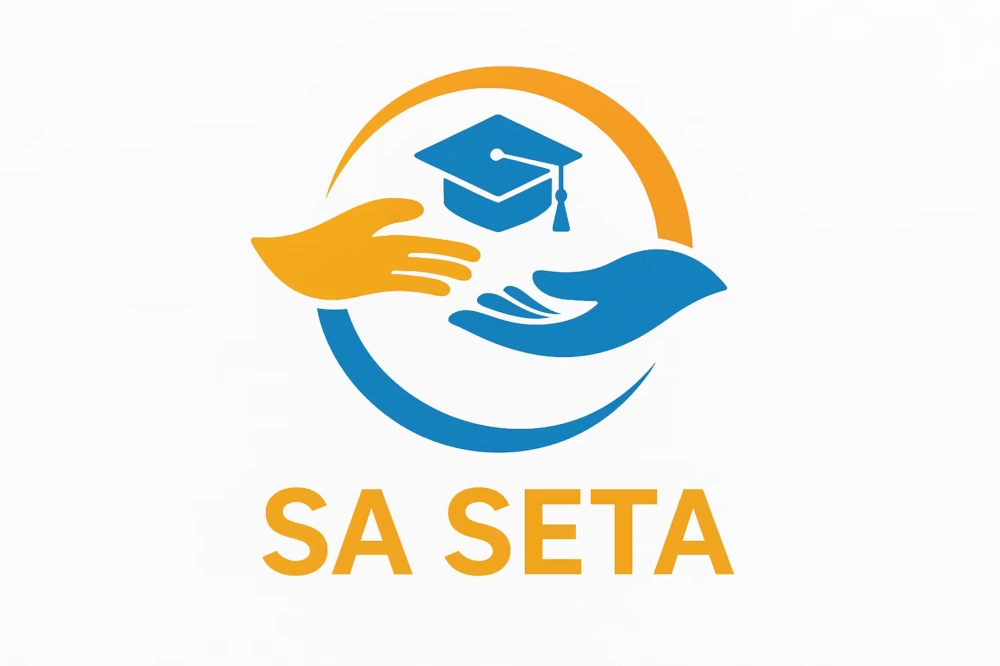SETA Accredited Training in South Africa
Introduction
The Benefits of SETA Accredited Training – In South Africa, SETA accredited training plays a vital role in workforce development. Whether you’re an employer seeking skilled talent or a professional aiming to upskill, SETA-approved courses ensure recognized, quality education aligned with national standards.
This guide explores the benefits of SETA accredited training, how it links to SARS rebates, and the role of key institutions like SAQA, ETQA, and NQF.
What is SETA Accredited Training?
A SETA (Sector Education and Training Authority) accredited training programme is a course that meets the strict standards set by one of South Africa’s 21 industry-specific SETAs. These authorities are tasked with quality assuring education and training within their respective sectors.
Once a participant completes a SETA-accredited course, they receive recognition of competence that is valid across the entire country. This certification is nationally benchmarked and often internationally comparable, making it a valuable credential for employment or career advancement.
Benefits of SETA Accredited Training
1. Nationally Recognised Certification
The most significant benefit is receiving a certificate of competence that is recognised throughout South Africa. This allows individuals to:
- Gain access to better job opportunities
- Build a pathway to full qualifications over time
- Receive formal recognition for acquired skills
2. Assurance of Training Quality
SETA accreditation ensures that:
- The course meets national education standards
- Trainers and assessors are qualified and registered
- Learning material is relevant and outcomes-based
3. Pathways to Full Qualifications
If you successfully complete multiple accredited courses within a qualification framework, you may be able to obtain a full Qualification Title. This is ideal for those pursuing structured career growth.
4. Portfolio-Based Assessment
Participants are not required to sit for exams. Instead, they complete a Portfolio of Evidence (PoE), which demonstrates practical understanding and competency. This makes the process:
- Less stressful
- More focused on real-world application
- Inclusive for adult learners or those re-entering the workforce
5. Employer Benefits and SARS Rebates
Employers benefit too. SETA-accredited training allows businesses to:
- Claim back a portion of the 1% skills development levy paid to SARS (for payrolls over R500,000)
- Apply for Mandatory Grants if they submit and implement a Workplace Skills Plan
- Access Pivotal Programme funding for sector-specific skills development
Understanding Key Bodies: SETA, SAQA, ETQA, and NQF
SETA – Sector Education and Training Authority
Responsible for developing skills in specific sectors by accrediting training providers and funding programmes.
ETQA – Education and Training Quality Assurance
These are bodies under SETAs that:
- Accredit providers
- Register assessors and moderators
- Ensure the integrity of the learning process
SAQA – South African Qualifications Authority
The overarching body that governs all ETQAs and ensures that all qualifications are aligned with the National Qualifications Framework (NQF).
NQF – National Qualifications Framework
This framework categorizes qualifications by levels (1–10) and credits, allowing comparability and quality assurance.
Will I Need to Pass Exams?
No traditional exams are required. Instead, participants must complete a Portfolio of Evidence (PoE) which includes:
- Written assignments
- Practical tasks
- Case studies or questionnaires
Once submitted, a registered assessor evaluates the PoE. If you’re found Not Yet Competent (NYC), you may resubmit your work for reassessment.
Related : BANKSETA: Everything You Need to Know
Who Assesses My Work?
Your PoE will be assessed by:
- A registered constituent Assessor
- Moderated by a registered constituent Moderator
Both are qualified specialists approved by the relevant SETA to ensure fair, consistent evaluation.
Do I Receive a Certificate?
Yes! There are two types:
- Certificate of Attendance – Issued after attending the course
- Certificate of Competency – Issued after successful PoE completion, recognized by SAQA and SETA
Examples of SETA Accreditation by Course
| Course Title | Accrediting SETA | Website |
|---|---|---|
| Occupational Health and Safety | Health and Wellness SETA (HWSETA) | hwseta.org.za |
| Assessor Course | Manufacturing, Engineering and Related Services SETA (MERSETA) | merseta.org.za |
| Moderator Course | Education, Training and Development Practices SETA (ETDP SETA) | etdpseta.org.za |
| Chainsaw Operator Course | Fibre Processing and Manufacturing SETA (FP&M SETA) | fpmseta.org.za |
| Plant Production | Agricultural SETA (AgriSETA) | agriseta.org.za |
| Plan a Municipal Budget | Local Government SETA (LGSETA) | lgseta.org.za |
| Skills Development Facilitator | Services SETA | servicesseta.org.za |
Conclusion: SETA Accredited Training
SETA accredited training is more than just a qualification—it’s a pathway to professional development, national recognition, and long-term career growth. It assures learners and employers alike of training quality and credibility, while also providing financial incentives for businesses to invest in skills development.
If you’re looking to enhance your skillset or empower your workforce, SETA-accredited programmes are the smart, sustainable choice.


